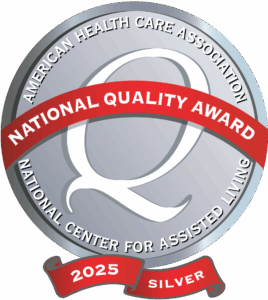Have you ever found yourself standing in the middle of a room, at a complete loss as to why you walked into it? You know there was a specific something you needed, but you have no idea what. Frustrated, you turn and leave the room, only to remember what it was you were looking for about 15 minutes later.
These types of memory lapses can happen fairly frequently to older adults, and experts agree that they are perfectly normal- just like forgetting where you left your keys, the name of the person your daughter introduced you to the other day, or where you last set down your glasses. These lapses in memory are annoying, but they don’t necessarily mean you are displaying any signs of Alzheimer’s disease just yet.
Alzheimer’s Symptoms vs. Normal Memory Loss in the Elderly
Our memories begin to wane as we age for a number of reasons. The region of the brain known as the hippocampus starts to deteriorate, which affects our ability to form and retrieve memories. Also, blood flow to the brain can start to decrease in seniors, affecting your memory and changing your cognitive skills. Finally, some of the hormones and proteins that protect and repair brain cells can also decline with age.
It can be difficult for a non-medical professional to determine if the memory loss is truly something to be concerned about. In the early stages of Alzheimer’s, the milder symptoms can be similar to the normal memory loss that comes with advancing age.
Here are a few ways to determine what is normal memory loss in the elderly and what could be signs of Alzheimer’s:
Normal Memory Loss
These types of memory lapses are generally considered normal among aging adults:
- Forgetting where you left certain things, like your book, glasses, purse, etc.
- Missing an appointment because it was not written down on a calendar
- Difficulty recalling information about a story you just heard or read about
- Entering a room and forgetting what you needed from it
- Calling loved ones by the wrong name- like calling your grandson your son’s name
- Forgetting the names of new acquaintances
- Getting distracted easily and moving on to another project before finishing the first one
- Trouble retrieving information that’s on the tip of your tongue
Alzheimer’s Symptoms
While it’s difficult to properly diagnosis Alzheimer’s disease in its early stages, experts agree that the sooner you receive a diagnosis, the sooner treatment can begin that may slow the progression of the disease. Some of the most common signs of Alzheimer’s include:
- Trouble recalling the right word for everyday objects
- Getting disoriented or lost in familiar places
- Difficulty performing everyday tasks, like balancing a checkbook or putting on clothes
- Forgetting how to do activities you’ve always done
- Misusing or mixing up words
- Trouble making good life choices or displaying poor judgment
- Forgetting a loved one’s name
- Difficulty recalling recent events
In general, memory loss from Alzheimer’s disease is a disabling form of memory loss that affects your daily life. It can disrupt your social life, your career, your hobbies and your relationships. If you and your loved ones are concerned about any recent changes in your memory, it’s imperative to see your doctor so a proper diagnosis can be given as soon as possible.
For more information about American Senior Communities, please visit www.ASCSeniorCare.com.




